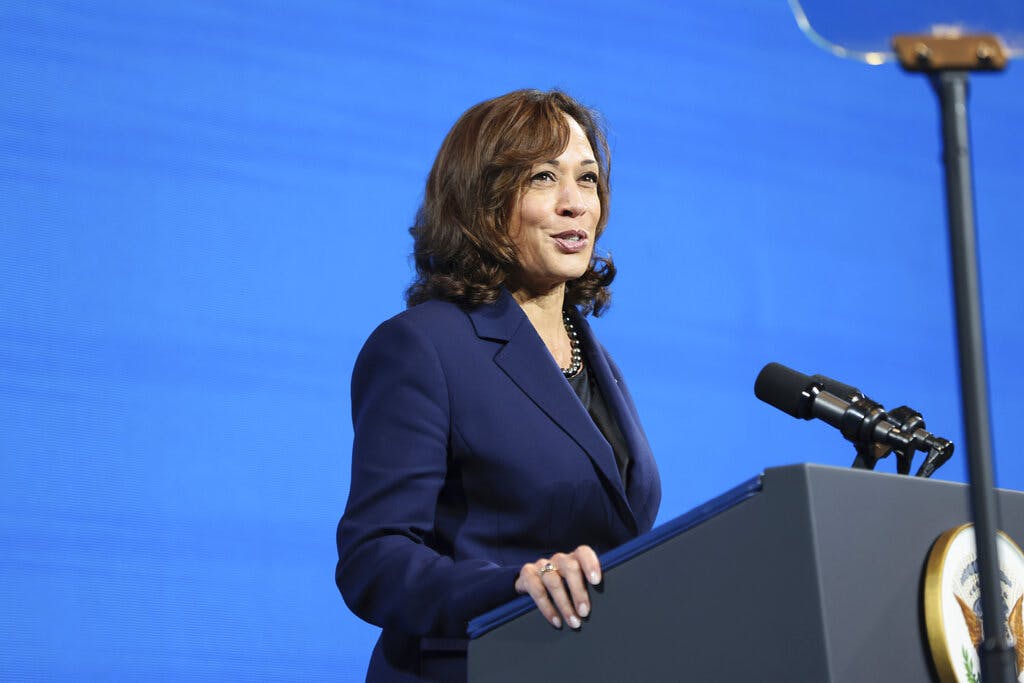With Vice President Subbing for Biden at Bangkok, China Sees Weakness
The English-language Global Times, an offshoot of Beijing’s People’s Daily, proclaimed that Biden’s absence showed America is ‘becoming increasingly irrelevant.’

It was America’s vice president versus China’s president at the Asia-Pacific Economic Cooperation group’s annual meeting Friday in Bangkok, with Vice President Harris standing in for President Biden in a bid to compete with China for influence in the region.
The vice president stuck to White House script in a speech proclaiming America was “here to stay,” while the Chinese dwelled on the absence of Mr. Biden, who had flown home after the talkfest of leaders of the world’s 20 leading economic powers in Bali.
The English-language Global Times, an offshoot of Beijing’s People’s Daily, proclaimed that Mr. Biden’s absence showed America is “becoming increasingly irrelevant” while “instigating geopolitical tensions and seeking to create division in the region in order to promote its own geopolitical agenda.”
It was “a clear sign of this trend,” the Global Times said, that Mr. Biden “decided to skip the APEC leaders’ meeting as he reportedly returned to the US for his granddaughter’s wedding.”
Like an understudy for the star, Ms. Harris, in words crafted to counter China’s growing influence all around its periphery — from the East China Sea facing Taiwan to the South China Sea — said just about what Mr. Biden would have said.
America’s “commitment to the Indo-Pacific,” Ms. Harris said, goes back “decades and generations.” That reference appeared as a plug for the newly formed Indo-Pacific Economic Framework for Prosperity, Washington’s latest attempt to match China’s aid and investment in its regional partners.
Just as Mr. Biden at the G20 was distracted by the war in Ukraine, so Ms. Harris had to deal with North Korea’s latest missile launch — a long-range Hwasong 17 capable of reaching targets almost anywhere in North America. The ICBM, according to South Korean military officials, soared 6,100 kilometers above the earth’s surface, landing 1,000 kilometers from its launch site in waters near Japan.
North Korea’s leader, Kim Jong-un, having held off on missile shots while President Xi was in Bali meeting Mr. Biden for three hours on the sidelines of the G20, clearly felt the need to make his presence known at the last of three gatherings of regional and world leaders this week. North Korea was barely mentioned at the G20 or by leaders of the Association of Southeast Asian Nations at their parley in Phnom Penh last weekend.
Ms. Harris, before making her speech, sat down with leaders of the two countries most affected by the launch, South Korea and Japan, as well as the leaders of Australia, Canada, and New Zealand, to decry the launch. As in her speech, she stuck to the cliches that Mr. Biden would have uttered, calling it “a brazen violation of multiple UN security resolutions.”
Mr. Xi, in the spirit of his dialogue with Mr. Biden, hewed to his own script reflecting his desire to tone down overt confrontation with America. He ignored the North Korean missile launch, seeing no reason to turn the region into “an arena for big power contest”or to do anything “to politicize economic and trade relations,” much less “wage a new cold war” — words that might be seen as a warning against stirring up tensions on Taiwan.

